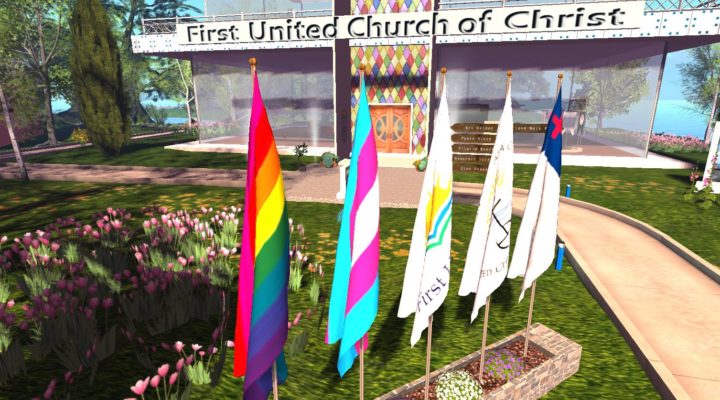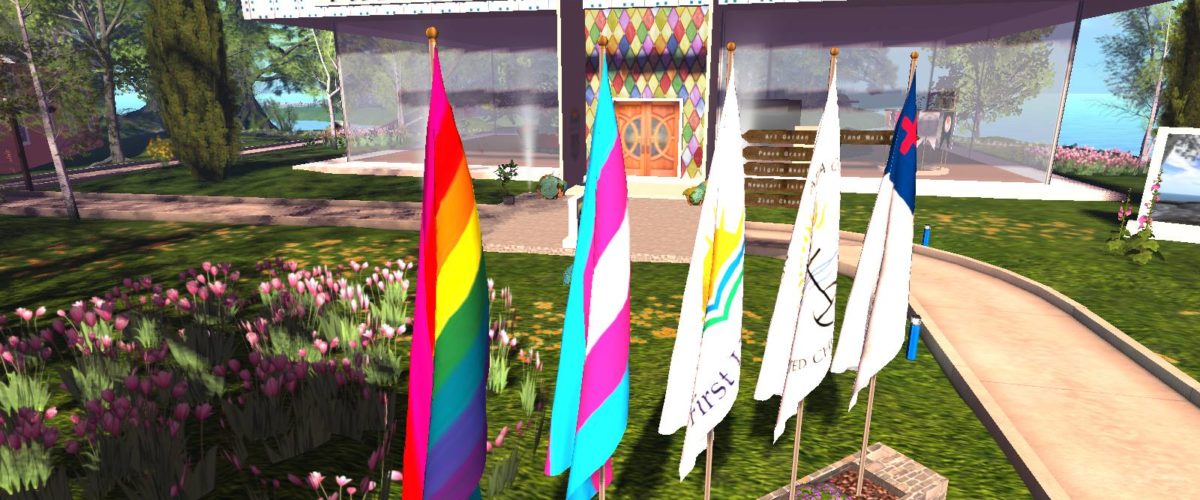While churches have adapted to new digital realities brought on by the COVID-19 pandemic, seminaries also have adapted to train ministers how to lead in new ways, both online and in-person.
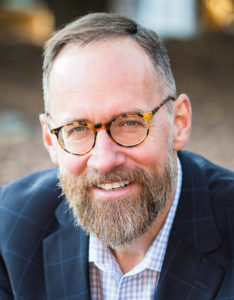
Greg DeLoach
“I think it behooves us in terms of faculty and staff to remind them that even though a pandemic is hopefully once in a lifetime, the truth is, in working with individuals, there’s always congregants dealing with their own micro-pandemic,” said Greg DeLoach, dean of McAfee School of Theology at Mercer University in Atlanta.
The pandemic pushed more churches to use technology to do ministry, thus leading seminary faculty to alter lesson plans to catch students up to the new reality. While seminaries faced their own adaptations to teach courses online, they at the same time adjusted to prepare ministers to lead online.
One Texas seminary already was on this path because of a partnership with a unique church.
Before COVID-19, First United Church of Christ Second Life was serving an array of churchgoers. A fully virtual church that takes place on the virtual reality platform Second Life and on Facebook, First UCC SL claims members from around the world, said Christine Ng, a pastor with the church. Worshipers also include people who have had negative experiences at other churches and who don’t want to visit an actual church building. One member who is on the Autism spectrum is nonverbal in in-person settings but can communicate online using a keyboard.
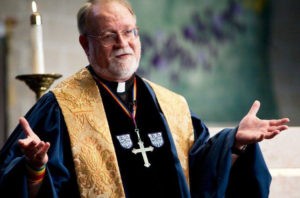
Stephen Sprinkle
For three years, students from Brite Divinity School at Texas Christian University in Fort Worth, Texas, have been able to intern at First UCC SL, learning to serve these different kinds of members. Stephen Sprinkle, Brite’s director of field education and supervised ministry, said the church “is a cutting edge setting we have worked with.”
For example, Ng said, interns will hang out on the church’s virtual reality simulator, which appears as an island, where they will interact with and provide pastoral care to members who randomly log on at that hour.
That kind of experience for interns is critical, Ng said, whether they end up working one day at a fully online church or an in-person one. “I don’t think this kind of ministry is going away. In fact, I think it is going to be a more important adjunct to all ministries.”
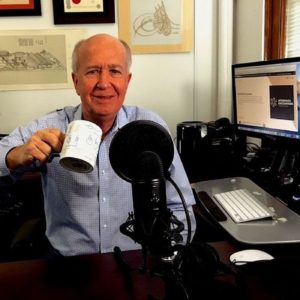
Robert Hunt
Robert Hunt and Marcell Silva Steuernagel, faculty at Perkins School of Theology at Southern Methodist University in Dallas, agree, which is why they started teaching a course titled “Digitally Mediated Ministry” last year. The course reviews both the tools of digitally mediated ministry and the deeper questions that come with using those tools. For example, Hunt said, the ethical implications of putting a church service on Facebook, a platform that exists for commercial purposes.
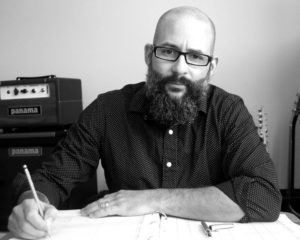
Marcell Silva Steuernagel
The need to explore those ideas was present before COVID-19, Steuernagel said, “But we systematized the things that already were happening that COVID catalyzed. It made them present, and it made them urgent, and we realized that the students were not prepared to deal with it.”
That urgency, Hunt and Steuernagel said, comes from everyone self-isolating, which raised church leaders’ awareness of members who already were self-isolated or who have difficulty attending church in-person. This newfound awareness can be thought of as “system upgrades,” Steuernagel said. It’s an improvement to what already existed.
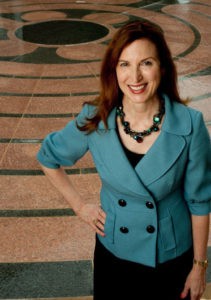
Alyce McKenzie
That’s how Alyce McKenzie, professor of preaching at Perkins, sees the lessons she has taught this past year. With many preachers being in front of a camera versus a crowd that the preacher can easily vibe with, McKenzie has emphasized to her students the importance of giving virtual sermons with just as much enthusiasm and animation as they would in person. She wants her students to be just as successful in either setting.
“The challenge for my students and all pastors right now is getting people back (to in-person), while maintaining an audience that may have come to us for the first time through Facebook or YouTube,” McKenzie said.
Although the pandemic has challenged churches to use technology to serve new, or different, members, it’s also instilled a greater desire among other people to congregate in-person, said Karen Massey, associate dean at McAfee. While she and DeLoach said McAfee is helping students be more comfortable using certain technology — either through lessons in the classroom or through real-time experiences, such as offering the seminary’s chapel services online — it also continues to prioritize the fundamentals.
“I think students are having to go into ministry these days with a foot in two different worlds. One foot has to be in the traditional ways of doing and being church. But then at the same time, having a foot in a technologically savvy kind of world,” Massey said. “I think they have to know how to speak the language of both worlds.”
Liam Adams is a freelance journalist based in Denver.
Related articles:
5 things I learned from visiting 50 online churches during the pandemic | Opinion by Laura Beth Buchleiter
This church was online before online was essential, and they’ve got some lessons to share
Pandemic opens the door to a far-flung notion of church membership
What will become of Sunday school? | Opinion by Mark Wingfield

